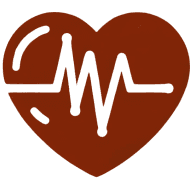What's Advice for Someone Starting their Career in Cardiology Nursing?
Embarking on a career in cardiology nursing comes with its unique set of challenges and rewards, as revealed by a seasoned Medical Director who emphasizes the importance of mastering hemodynamics. Alongside expert advice, we've gathered additional answers that encapsulate the wisdom and practical tips from those in the heart of the field. From the crucial skill of ECG interpretation to the necessity of effective stress management, here's a collection of invaluable guidance for the aspiring cardiology nurse.
- Master Hemodynamics Early On
- Prioritize Patient Emotional Well-Being
- Commit to Lifelong Learning
- Excel in ECG Interpretation
- Foster Strong Team Collaborations
- Develop Effective Stress Management
Master Hemodynamics Early On
To a new cardiology nurse, it's super important to develop a deep, intuitive understanding of hemodynamics. It's the language of the heart. Every murmur, every gallop, every change in blood pressure or central venous pressure is a sentence in this language. Master it, and you'll anticipate problems before they become crises.
Remember, the heart is a pump. Understand its mechanics—preload, afterload, contractility—and you'll grasp the pathophysiology of countless conditions. It's not just about memorizing facts; it's about visualizing the heart in action and how interventions impact its performance.
This knowledge will be your foundation. Build on it with a keen eye for detail. Subtle changes in a patient's condition can signal impending trouble. Trust your instincts, but always back them up with data.

Prioritize Patient Emotional Well-Being
Starting a career in cardiology nursing requires more than just medical knowledge; it also calls for a deep understanding of the patients' emotional needs. A nurse in this field should show compassion and understanding, creating a comforting presence for those undergoing treatment for heart conditions. This establishes trust and improves the overall care experience for patients.
Being empathetic also helps in better patient assessment and can lead to more effective care plans. Always remember to put yourself in the patients' shoes and make their emotional well-being a priority in your care strategy.
Commit to Lifelong Learning
For those new to the field of cardiology nursing, it's vital to maintain a robust and current understanding of cardiovascular health and treatment techniques. The world of medicine is always evolving, and staying informed about the latest research, drugs, and therapies is crucial for providing top-notch care. This might mean taking additional courses, attending seminars, and reading respected cardiology journals regularly.
Knowledge ensures safety and the best possible outcomes for patients under your care. Commit to lifelong learning in cardiology to ensure you are always at the forefront of patient care.
Excel in ECG Interpretation
Cardiology nursing involves a significant amount of technical skill, particularly in interpreting electrocardiograms (ECGs). Understanding the nuances of ECG waves, intervals, and segments is essential in diagnosing cardiac conditions and monitoring patient status. Mastery of this skill allows nurses to provide immediate and accurate feedback to the rest of the healthcare team.
This competence is critical in emergency situations and plays a pivotal role in patient outcomes. Aim to excel in ECG interpretation through practice and continual education.
Foster Strong Team Collaborations
Working in cardiology nursing often means being part of a larger team of healthcare professionals. Building strong collaborative relationships with doctors, pharmacists, physical therapists, and other nurses is essential for coordinated patient care. Excellent communication and a willingness to engage with colleagues about patient treatment plans contribute to better outcomes and a smoother workflow.
It's important to respect the expertise of others and integrate your nursing care seamlessly with other interventions. Strive to be the team player who everyone can count on for insightful contributions and support.
Develop Effective Stress Management
In the demanding field of cardiology nursing, it's essential to have effective strategies for managing stress. High-pressure situations are common, and being able to maintain calm and focus is vital for both the nurse and the patient.
Developing methods to cope with the challenges faced daily, such as mindfulness practices, regular physical activity, or hobbies outside of work, can help sustain personal health and job satisfaction. Remember, taking care of yourself is the first step in taking care of others, so make stress management a key component of your professional life.

